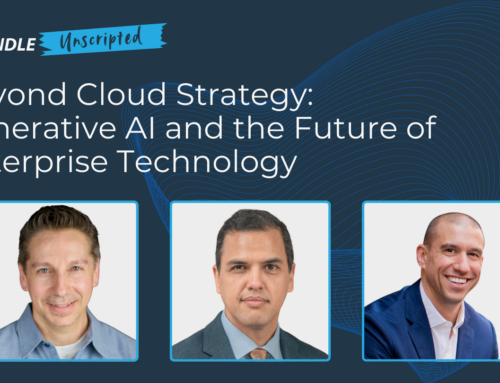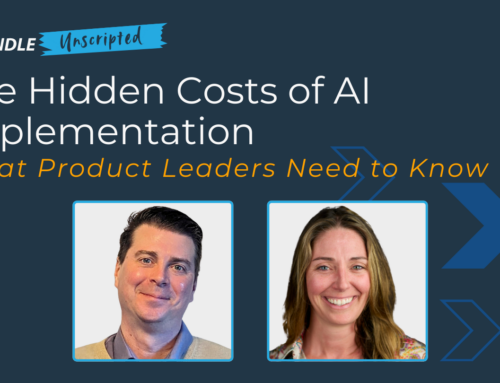In this episode of Ascendle Unscripted, Michael Cinquino hosts Susannah Mitchell, VP of Operations at Ascendle, and Lynzi Cashman, Director of Delivery, discuss New Year’s resolutions for software professionals. The conversation highlights the challenges and strategies around setting and achieving meaningful goals.
Rethinking Resolutions
There is no one right way to approach New Year’s resolutions. Lynzi shares her unique approach, emphasizing the importance of enjoying the journey rather than focusing solely on the end goal. She finds success in not making traditional resolutions, which allows her to avoid self-criticism and appreciate the process. Susannah, on the other hand, still believes in the value of resolutions. She highlights the importance of setting specific, measurable, actionable, and realistic goals, often referred to as SMART goals. Susannah emphasizes that resolutions fail when they are vague, unrealistic, or not actionable.
SMART Goals for Software Professionals
Both Susannah and Lynzi agree on the effectiveness of SMART goals. Software professionals should apply the same principles to their resolutions as they would to any professional goal. This includes being specific, measurable, actionable, and realistic. Lynzi introduces the concept of “broadly specific” goals, which are specific enough to provide direction but broad enough to allow for growth and adaptation throughout the year. This approach helps individuals and teams stay flexible and responsive to changes. Considering the business outcome that you want to achieve is a great approach when thinking through your professional goals, and the goals for your team.
Identifying and Setting Personal Goals
There are many challenges and strategies around setting and achieving meaningful goals. One strategy when setting goals is to reflect on what your team members want to achieve in the coming year. Ask questions such as: What do you want your 2025 to look like? Do you want to learn a new skill, grow into leadership, or build confidence? Lynzi emphasizes the need for goals that are personal yet impactful professionally. She suggests setting goals that allow for continuous reflection and adjustment, ensuring they remain relevant and achievable.
Balancing Flexibility and Consistency
The discussion also touches on the need for flexibility in goal-setting. Lynzi highlights the importance of being responsive to change, a key tenet of agile frameworks. She advises against being too rigid with goals, allowing for adjustments as circumstances evolve. Susannah adds that meaningful goals are those that create positive change and foster a virtuous cycle of improvement. She recommends setting goals that address real issues and have a significant impact.
Practical Examples
To illustrate their points, Susannah and Lynzi provide examples of common goals in software development, such as improving cross-team communication and accurate work estimation. They suggest setting simple, actionable goals like committing to attending sprint reviews and providing feedback.
Questions to Ask During Goal Setting
Don’t underestimate the importance of introspection and asking the right questions when setting goals. Lynzi suggests using a classic retrospective technique: asking what to keep doing, stop doing, and start doing. This approach encourages deep reflection and meaningful change. It is beneficial to identify behaviors to stop, such as rushing through work, which can lead to errors. It is also powerful to stop the negative self-talk, which can lead to imposter syndrome. These changes, though not always quantifiable, can significantly improve personal and professional growth.
There’s a line of questioning that a leader can ask that can help with this goal setting. Are the teams delivering predictably? Do the teams know what they should be working on? Do the teams feel they are making progress against those company goals? Are the company goals clear to everybody? Are we building the right thing? Are we building it predictably? Are we building it at a high level of quality? These are questions that can be asked that can help point towards what the root causes might be and help set some goals.
The Journey Matters
Both Lynzi and Susannah stress that the journey towards achieving a goal is just as important as the goal itself. They encourage appreciating the process of self-discovery and growth, even if the goal isn’t fully achieved. Susannah suggests setting incremental or micro goals, similar to Scrum practices, to build towards the larger goal. By taking time to do annual planning and goal setting, and putting measurements in place to assess your progress, your teams will benefit.
Final Thoughts
As you set your goals for the upcoming year, focus on impactful changes that can be kept top of mind daily. By setting SMART goals and focusing on habits that lead to desired outcomes, individuals and teams can avoid the all-or-nothing trap and achieve sustained progress.
Want to get Ascendle Unscripted episodes sent directly to your inbox? Subscribe here!





